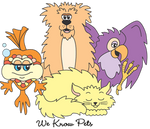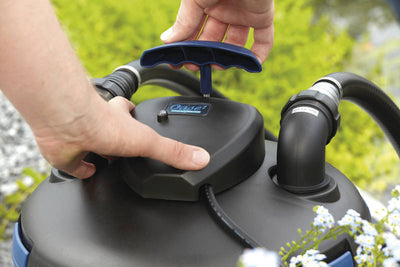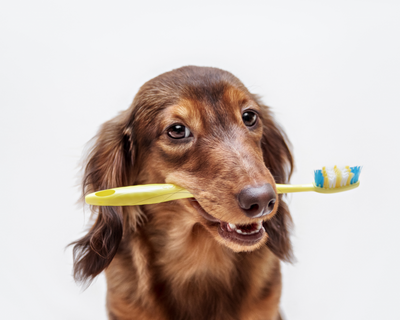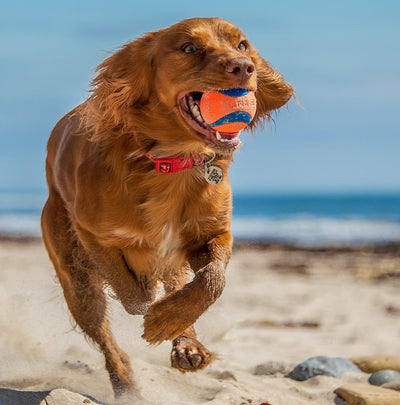
From the deep baying of a hound on the hunt to an unsettling inner-city howl during a full moon, dogs howling has been captivating humans for thousands of years. But why do our dogs howl? In this guide, we dive into all the various theories about why our canine pals make this distinctive sound.
Is howling related to a Wolf Pack?
In the past, dogs used howling to communicate with each other and as a way of establishing their territory. By howling together in a ‘pack’, they could announce their presence to local predators or rivals. It's also believed that this form of unified singing signifies the bond between the members of the pack and provides them with a sense of comfort and belonging.
Dogs howl as a primal instinct that has been passed down through generations of their wolf ancestors. Wolves are pack animals, and howling is one of the ways they communicate with each other over long distances.
When a dog howls, it's often in response to certain stimuli, such as hearing  other dogs or animals howling, hearing loud or high-pitched sounds, or sensing a strong emotion in their human companions. Howling can also serve as a way for dogs to establish their territory or communicate with their pack members.
other dogs or animals howling, hearing loud or high-pitched sounds, or sensing a strong emotion in their human companions. Howling can also serve as a way for dogs to establish their territory or communicate with their pack members.
While domesticated dogs have evolved to become more sociable and reliant on humans, their instinct to howl still remains. Some breeds, like the Husky or the Beagle, are more prone to howling due to their genetic predisposition. However, it's important to note that not all dogs howl and that the frequency and intensity of howling can vary between individual dogs.
Showing Affection and Bonding with Their Owners.
It’s not uncommon for dogs to howl as a way of expressing delight and affection when they get reunited with their owners after a long absence. This type of howling might also be an attempt to bond with the owner by reinforcing the canine-human relationship. Furthermore, dogs may learn that howling pleases their owners and keeps them connected to them in some way—therefore, it becomes a reward-associated behaviour.
Communication With Other Dogs.
Dogs may also howl if they hear another dog in the distance. By howling, they can communicate with other canines and determine their location and even initiate a game. In this case, the intensity of their howls will increase as they get closer to the other dog until eventually, the two meet up and start playing together.
Howling Can Be Involuntary or Learned Behaviour.
In some cases, dogs may also howl compulsively as traditionally seen in breeds such as Beagles and Finnish Spitzes. It is believed to be an involuntarily behavior that is passed down genetically. Puppies born in these breeds are more likely to display howling behavior than puppies from other breeds, suggesting that this may be an inherited trait. On the other hand, other canines may have learned to howl when they are bored and lonely due to years of attention seeking.
Do Dogs Howl Because They Are Unhappy?
This common theory suggests that dogs howl as a sign of distress, displeasure or pain when their people are not around. While this may be true in some instances, it is important to remember that howling isn't always a sign of an unhappy dog. In fact, recent studies have shown that howling can actually be an expression of joy for many dogs – particularly for those who have strong bonds with their owners!
Why do particular sounds make my dog howl?
There are certain sounds that can trigger howling in your dog, for example many dogs howl when they hear sirens, an alarm or phone ringing. This kind of howling is generally contingent on when trigger stops and starts. It may be annoying but it is simply your dog being a dog.
Howling is a primal reaction that your dog has. Your dog is communicating with you and other dogs around him. Unless it is incessant or urgent, you have a normal dog that just wants to let you know what is going on.
Separation Anxiety in Dogs
Sometimes, dogs can howl when they experience separation anxiety. Separation anxiety usually occurs when a dog's owner is leaving the house and the dog feels the need to be with them. If a dog has separation anxiety, they may whine or howl while the owner is departing and remain vocal throughout the time that they are gone. This type of anxious howling is meant to communicate distress or try to get their owner's attention.
What to Do About Excessive Howling
Dogs howl as a form of communication with each other or to express loneliness or emotional distress, since it often occurs when their owners are away. They may also howl when they hear certain sounds like sirens or music, sense fear, anticipate food, or recognize familiar smells. To prevent excessive barking and howling due to loneliness, spend more quality time with your pup – take them on walks, play games and tricks, train them, and show them love and attention.






